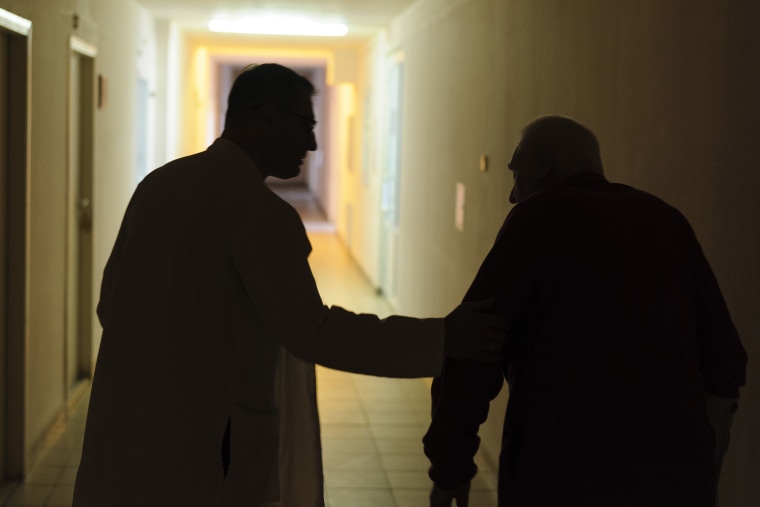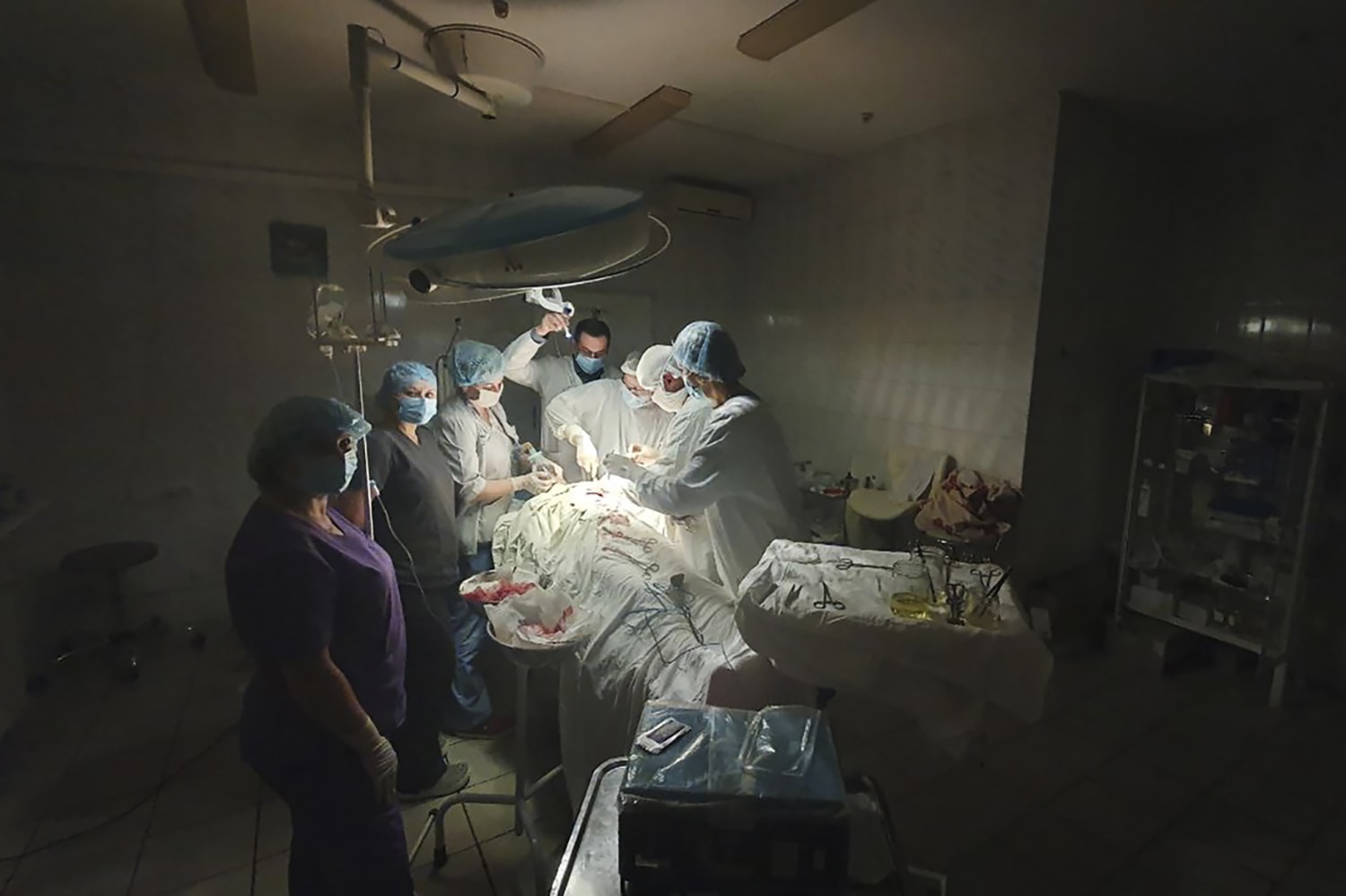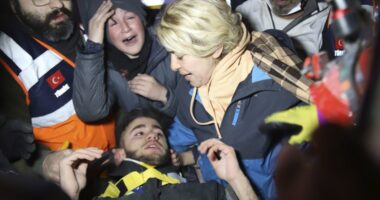Last week, Kyiv’s Heart Institute posted on its Facebook page a video of surgeons operating on a child’s heart with the only light coming from headlamps and a battery-powered flashlight.
“Rejoice, Russians, a child is on the table and during an operation the lights have gone completely off,” Dr. Boris Todurov, director of the institute in the capital, said in the video. “We will now turn on the generator — unfortunately, it will take a few minutes.”
Attacks have hit hospitals and outpatient clinics in southeastern Ukraine, too. The WHO said in a statement last week that they have verified at least 703 attacks between Feb. 24, when Russian troops rolled into Ukraine, and Nov. 23.
The Kremlin has rejected accusations that it targets civilian facilities. Kremlin spokesman Dmitry Peskov once again insisted last week that Russia is targeting only sites “directly or indirectly related to military power.”
But just last week, a strike on a maternity ward in a hospital in eastern Ukraine killed a newborn and heavily wounded two doctors. In the northeastern Kharkiv region, two people were killed after the Russian forces shelled an outpatient clinic.
In Lviv, Duda said the explosions were so close to the hospital that “the walls were shaking,” and doctors and patients had to go down to the shelter in the basement — something that happens every time an air raid siren sounds.
The hospital, which specializes in treating cancer, performed only 10 out of 40 operations scheduled for that day.
In the recently retaken southern city of Kherson, without power after the Russian retreat, paralyzed elevators are a real challenge for paramedics.
They have to carry immobile patients all the way down the stairs of apartment buildings, and then bring them up again to operating rooms.

Across Kherson, where it starts to get dark after 4 p.m. in late November, doctors are using headlamps, phone lights and flashlights. In some hospitals, key equipment no longer works.
Last Tuesday, Russian strikes on the southern city wounded 13-year-old Artur Voblikov, and doctors had to amputate his arm. Medical workers carried the teenager through the dark stairwells of a children’s hospital to an operating room on the sixth floor.
“The breathing machines don’t work, the X-ray machines don’t work. … There is only one portable ultrasound machine and we carry it around constantly,” said Dr. Volodymyr Malishchuk, head of surgery at a children’s hospital in Kherson.
The generator the children’s hospital uses broke down last week, leaving the facility without any form of power for several hours. Doctors are wrapping newborns in blankets because there’s no heat, said Dr. Olga Pilyarska, deputy head of intensive care.
The lack of heat makes operating on patients difficult, said Dr. Maya Mendel, at the same hospital. “No one will put a patient on an operating table when temperatures are below zero,” she said.
Health Minister Viktor Liashko said on Friday that there are no plans to shut down any of country’s hospitals, no matter how bad the situation gets, but the authorities will “optimize the use of space and accumulate everything that’s necessary in smaller areas” to make heating easier.
Liashko said that diesel or gas generators have been provided to all Ukrainian hospitals, and in the coming weeks an additional 1,100 generators sent by the country’s Western allies will be delivered to the hospitals as well. Currently, hospitals have enough fuel to last seven days, the minister said.
Additional reserve generators are still badly needed, the minister added. “The generators are designed to work for a short period of time — three to four hours,” but power outages can last up to three days, Liashko said.
In the recently recaptured territories, the medical system is reeling from months of Russian occupation.
Ukraine’s President Volodymyr Zelenskyy has accused the Russian forces of shutting down medical facilities in the Kherson region and looting medical equipment — even the ambulances, “literally everything.”
Dr. Olha Kobevko, who has recently returned from the retaken areas of Kherson after delivering humanitarian aid there, echoed the president’s remarks in an interview.
“The Russians stole even towels, blankets and bandages from medical facilities,” Kobevko said.
Source: | This article originally belongs to Nbcnews.com









